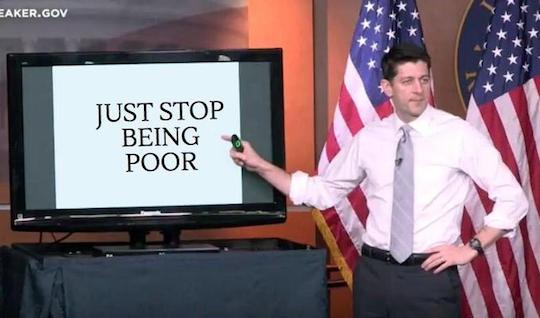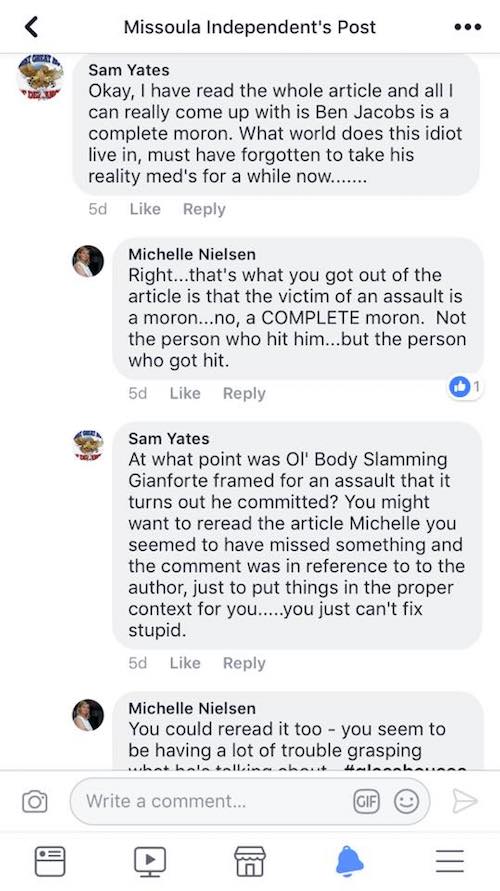My advice to you, sir or madam or whatever, is to never read the comments section of anything. It’s depressing. When we read the comments section, we imagine we are getting a cross-section of the general public, when in fact we are getting a cross-section of people who leave internet comments. This sampling error distorts our perception and convinces us that ordinary folks are even dumber than they actually are. I should know; I broke my own rule and have been reading comments on my Indy column all week, because such are the joys of satire. Here is the winner—this guy who believes Ben Jacobs wrote my column and is “a complete moron”:
“You just can’t fix stupid,” he says to the woman who tries to correct his spectacular misreading. This brings us to a rule even more ironclad than “don’t read the comments.” The people who call other people stupid are invariably really, really smart.
Anyway, this sort of thing amuses me, so I wrote another satirical column this week. It’s about Montana’s policy of revoking the driver’s licenses of people who have unpaid fines or court fees, and the class-action suit filed against it by the DC nonprofit Equal Justice Under Law. Their plaintiff is Michael DiFrancesco, who got a ticket for possessing alcohol when he was 14 and couldn’t pay his $185 fine, plus the fee for a mandatory substance abuse education course. As a result, he has never been eligible for a driver’s license. That would prevent him from getting a job—especially here in Montana, where everything is far apart and public transportation is poor—if he weren’t willing to drive without a license, which he has been. The ensuing citations have increased the amount he owes the state to just under $4,000.
If you read the comments on this article about his case in the Helena Independent Record, you will find the consensus view is that he shouldn’t have gotten a ticket in the first place. Among internet commenters, this passes as a penetrating insight. If you read their quote-unquote arguments, though, you will find few people arguing that the punishment for minor-in-possession-of-alcohol should be a $4,000 fine and suspension of driving privileges for ten years. Their position is not that minors who drink deserve whatever they get, but that minors who drink and don’t pay the fine deserve whatever they get.
What we are looking at here is a two-tier system of infractions. The punishment for MIP if you have $185 is a $185 fine. The punishment for MIP if you don’t have $185—or, in most cases, if your parents don’t have $185—is lifetime suspension of driving privileges, intermittent homelessness, and financial penalties that mount beyond 20 times the statutory fine. Compare what DiFrancesco has suffered as a result of drinking beer when he was 14 to what Greg Gianforte suffered for punching a reporter when he was 56. The difference in how these two people were punished comes down to how much money they had when they committed their crimes. You can read all about it in this week’s column for the Missoula Independent, in which I cite Gianforte as a paragon of civic responsibility and argue that the poor are getting a sweet deal. Perhaps the commenters will finally agree with me.






In the spirit of this post, I read the comments on the Independent article you link to. Does the Independent really house it’s journalists in ivory towers?
That kid is just smart enough to say really dumb stuff. In general, though, the idea that journalists are rich tell you just how disconnected from reality the public perception of newspapers has become.
He does make a good suggestion though. Your piece probably should include a statement or two explaining what, if any, punishment poor people suffer in your theory of justice. He put it a little obtusely, but he’s excited.
“Only the wealthy should have to pay for their crimes, right Dan?”